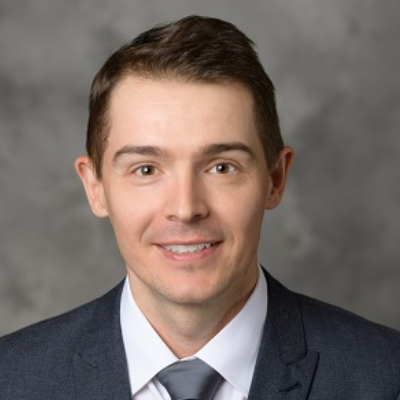May 2-3, 2024
The Daniels School of Business’ new Center for Behavioral Economics, Experiments and Public Policy invited PhD students, postdocs, and early career researchers to attend the center’s first workshop.
The Learning, Computational and Bayesian Methods in Experimental Economics workshop was held May 2-3, 2024, on Purdue’s campus in West Lafayette, Indiana. There was no fee to attend the workshop, thanks to generous funding from the Vernon L. Smith Experimental Economics Education Fund. Attendees received grants sufficient to cover their travel, lodging and meal expenses.
The Learning, Computational and Bayesian Methods workshop was followed by a conference celebrating the grand re-opening of the business school’s newly renovated Vernon Smith Experimental Economics Laboratory, May 3-4, 2024. See schedule below.
The workshop provided a participatory and hands-on introduction to methods in computational and learning models and structural Bayesian econometric techniques to the field of experimental and behavioral economics. It was targeted for researchers who wish to develop greater methodological expertise and the practical uses of these new methods for experimental design and investigation of human exchange systems.
The opening day included a mentoring lunch that covered demystifying the publication process and early career strategies, followed by student presentations and discussions of their own research projects, with assigned faculty discussants in a single-track format.
The event also featured two half-day “mini-courses” led by Yaroslav Rosokha and James Bland on these topics:

Reinforcement and Evolutionary Learning Models in (Experimental) Economics, led by Daniels School Associate Professor of Economics Dr. Yaroslav Rosokha. Recent advances in machine learning have renewed interest in integrating learning models with human subject experiments. This mini-course began with an overview of the literature at the intersection of experimental/behavioral economics and computational economics and continued with specific implementations of recent reinforcement and evolutionary learning models in Python. In addition, the course provided a connection between the seminal reinforcement and evolutionary models in experimental economics (e.g., Roth and Erev 1995) to more complex models, such as Q-learning and deep Q-learning from computer science. Students worked in groups to replicate results from the literature and proposed a project that either extends existing results or applies one of the models to a novel context.

Structural Bayesian Techniques for Experimental and Behavioral Economics, led by Purdue PhD in Economics alum and University of Toledo Associate Professor of Economics Dr. James Bland. His mini-course provided an introduction to using Bayesian techniques to estimate structural models of behavior from economic experiments, using the free software package Stan. Bayesian techniques are becoming increasingly popular in this area due to their efficient treatment of participant-level unobservable heterogeneity, as well as some recent advances in computation. Topics covered included: translating an economic model into an econometric model, considerations for choosing a prior, modeling unobservable heterogeneity, estimating a utility function, and estimating some models of strategic interactions.
MAY 1
6 p.m.
Welcome reception
MAY 2
8:30 a.m.
Reinforcement and Evolutionary Learning
Noon
Mentoring luncheon on publication and career strategies
1:30 p.m.
Structural Bayesian Techniques
6 p.m.
Workshop dinner
MAY 3
8:30 a.m.
Workshop participants’ research presentations and discussion
Noon
Workshop closing lunch
1 p.m.
VSEEL Grand Reopening Conference begins
6:30 p.m.
Conference dinner (workshop attendees invited)
MAY 4
8:30 a.m. - 5:30 p.m.
VSEEL conference continues (workshop attendees invited)
The center makes fundamental research contributions in the emerging field of behavioral economics. Center faculty, students and partners combine theoretical insights with data from controlled experiments to better understand human decision making. This basic scientific research provides solid empirical foundations to address important public policy and management questions.
Send questions about the workshop to Center for Behavioral Economics, Experiments and Public Policy Director Tim Cason at BEEP@purdue.edu.